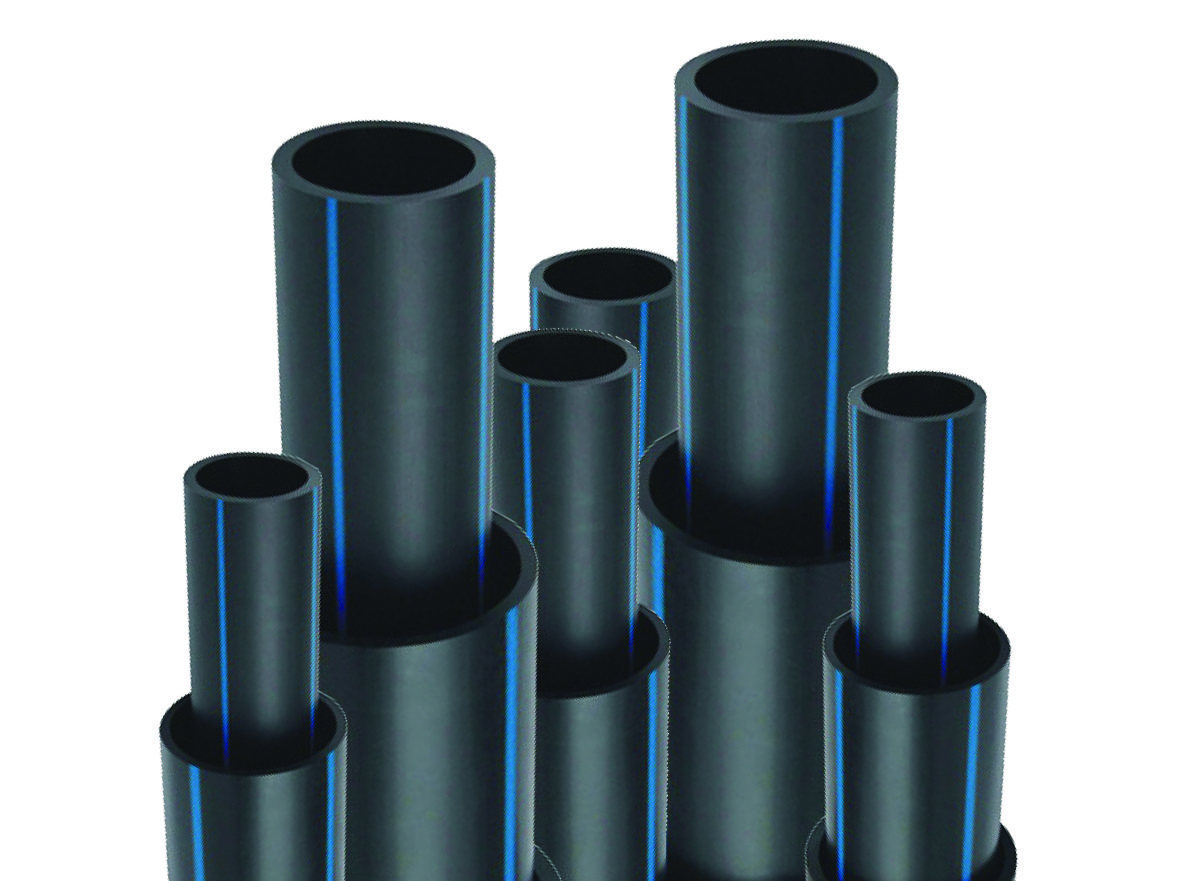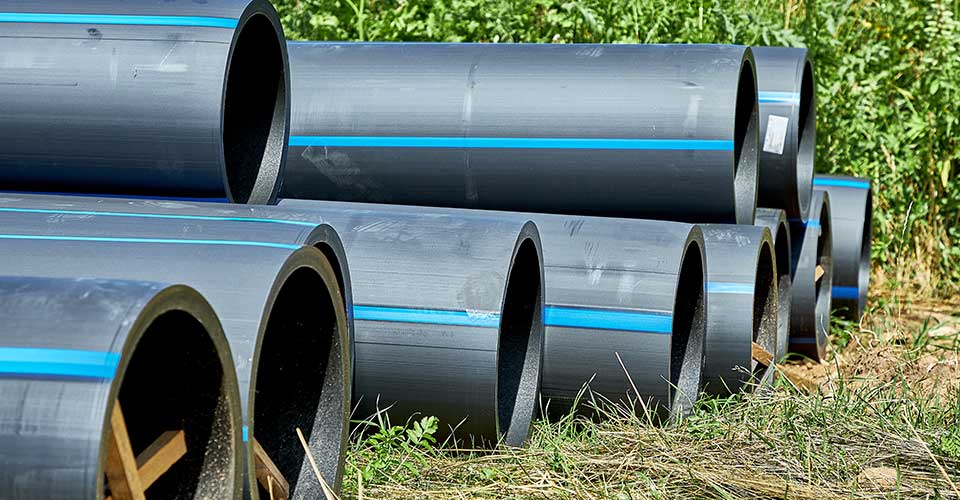How to Install hdpe pipe fittings Midland TX for Reduced Maintenance
Comprehending the Trick Conveniences of HDPE Pipeline for Water and Wastewater Management
Making use of HDPE pipeline in water and wastewater monitoring presents numerous benefits that merit consideration. Its extraordinary sturdiness and long life-span make it a favored choice for many tasks. Furthermore, the material's resistance to deterioration and chemical damages improves its reliability in various environments. Nonetheless, the advantages expand past just longevity and resistance. Exploring its cost-effectiveness and ecological impact exposes much more engaging reasons for its prevalent adoption in contemporary framework
Outstanding Durability and Durability

HDPE pipeline stands apart for its outstanding resilience and durability, making it a recommended choice in water monitoring systems. Constructed from high-density polyethylene, these pipes can hold up against significant pressure and anxiety, making certain dependable performance gradually. Their durable nature permits them to sustain severe ecological conditions, including temperature fluctuations and soil motions, which can trigger various other products to stop working.
The life-span of HDPE pipelines commonly goes beyond 50 years, offering a cost-efficient solution for towns and sectors alike. In addition, the product's light-weight homes simplify installation, reducing labor costs and durations. This durability minimizes the demand for constant fixings or substitutes, better improving its economic appeal.
In water management applications, the integrity of HDPE pipelines implies fewer disruptions and boosted service continuity, making them integral to lasting facilities development. The combination of longevity and long life solidifies HDPE's role as a keystone in efficient water management remedies.

Resistance to Corrosion and Chemical Damage
While several products surrender to deterioration and chemical damages over time, HDPE pipes exhibit amazing resistance, making them perfect for different water monitoring applications. This strength originates from the molecular framework of high-density polyethylene, which is inherently non-reactive and does not corrode like steels or deteriorate from exposure to rough chemicals. Because of this, HDPE is highly reliable in atmospheres with aggressive materials, such as wastewater systems that may contain acids, bases, and natural solvents.
Additionally, HDPE pipelines can stand up to environmental variables such as soil acidity and saline problems, even more enhancing their viability for varied applications (American Plastics HDPE Pipe for Oilfield). Their ability to keep structural integrity with time decreases the threat of leaks and failings, which is crucial in ensuring the security and integrity of water distribution and wastewater monitoring systems. Consequently, the resistance to rust and chemical damages noticeably adds to the general performance and longevity of HDPE piping options
Cost-Effectiveness and Economic Advantages
When considering the economic implications of water administration systems, the cost-effectiveness of HDPE pipelines ends up being obvious. These pipelines offer lower setup and upkeep costs contrasted to traditional materials like steel or concrete. Their lightweight nature streamlines transport and installation, causing decreased labor expenditures. In addition, HDPE pipelines exhibit a long life-span, frequently going beyond half a century, which translates to fewer replacements and lasting savings.
Moreover, the resistance of HDPE to deterioration and chemical damages minimizes the requirement for pricey fixings and replacements. The pipelines additionally sustain reliable water circulation, lowering power costs related to pumping systems. By minimizing leakages and water loss, HDPE pipelines add to significant economic benefits for communities and sectors alike. Overall, the first financial investment in HDPE piping can produce considerable economic returns over the lifespan of the water administration system, making it a prudent selection for lasting framework growth.
Environmental Sustainability and Decreased Influence

Versatility and Adaptability in Setup
Due to their one-of-a-kind residential or commercial properties, HDPE pipelines use amazing flexibility and adaptability in setup, making them suitable for a variety of applications. Their light-weight nature permits easier handling and transport, decreasing labor prices and setup time. HDPE pipelines can be curved and formed to fit various surfaces and project demands, which is particularly valuable in challenging settings.
Additionally, their resistance to deterioration and chemical damage enables installation in varied settings without the requirement for specialized protective coatings. The capability to fuse joints develops a constant, leak-free system, boosting the overall stability and reliability of the installment. HDPE's flexibility additionally fits ground activity, minimizing the risk of damages in locations prone check here to moving soil. On the whole, these qualities make HDPE pipelines not only functional however also a recommended option for water and wastewater administration systems.
Frequently Asked Inquiries
Exactly How Does HDPE Pipeline Compare to PVC in Water Monitoring Applications?
HDPE pipe supplies remarkable adaptability, resistance to deterioration, and durability contrasted to PVC. Its lighter weight facilitates less complicated setup, while its long life expectancy reduces substitute costs, making HDPE a recommended option in water administration applications.
What Is the Life-span of HDPE Pipes Under Common Problems?
Under common problems, HDPE pipes can have a life-span ranging from 50 to 100 years. Their toughness and resistance to deterioration contribute to their long-term performance in different applications, making them a trustworthy selection for infrastructure.
Are HDPE Water Lines Recyclable After Their Solution Life?
Yes, HDPE pipelines are recyclable after their life span. American Plastics HDPE Pipe Manufacturing. They can be processed and repurposed right into brand-new items, significantly decreasing ecological impact and promoting sustainability within the industry, making them an environment-friendly selection for piping options
What Is the Installation Refine for HDPE Water Lines?
The installation procedure for HDPE pipes involves website preparation, trenching, pipeline combination or mechanical joining, backfilling, and stress screening. Appropriate strategies assure a resilient and efficient system for moving water and wastewater successfully.
Can HDPE Pipeline Be Made Use Of for Both Safe And Clean and Non-Potable Water Solutions?
Yes, HDPE pipes can be made use of for both drinkable and non-potable water systems. Their convenience, toughness, and resistance to corrosion make them ideal for different applications, making certain risk-free and reliable transport of water in different contexts.